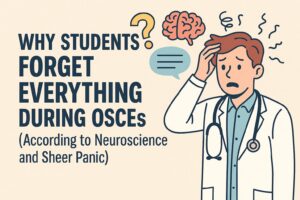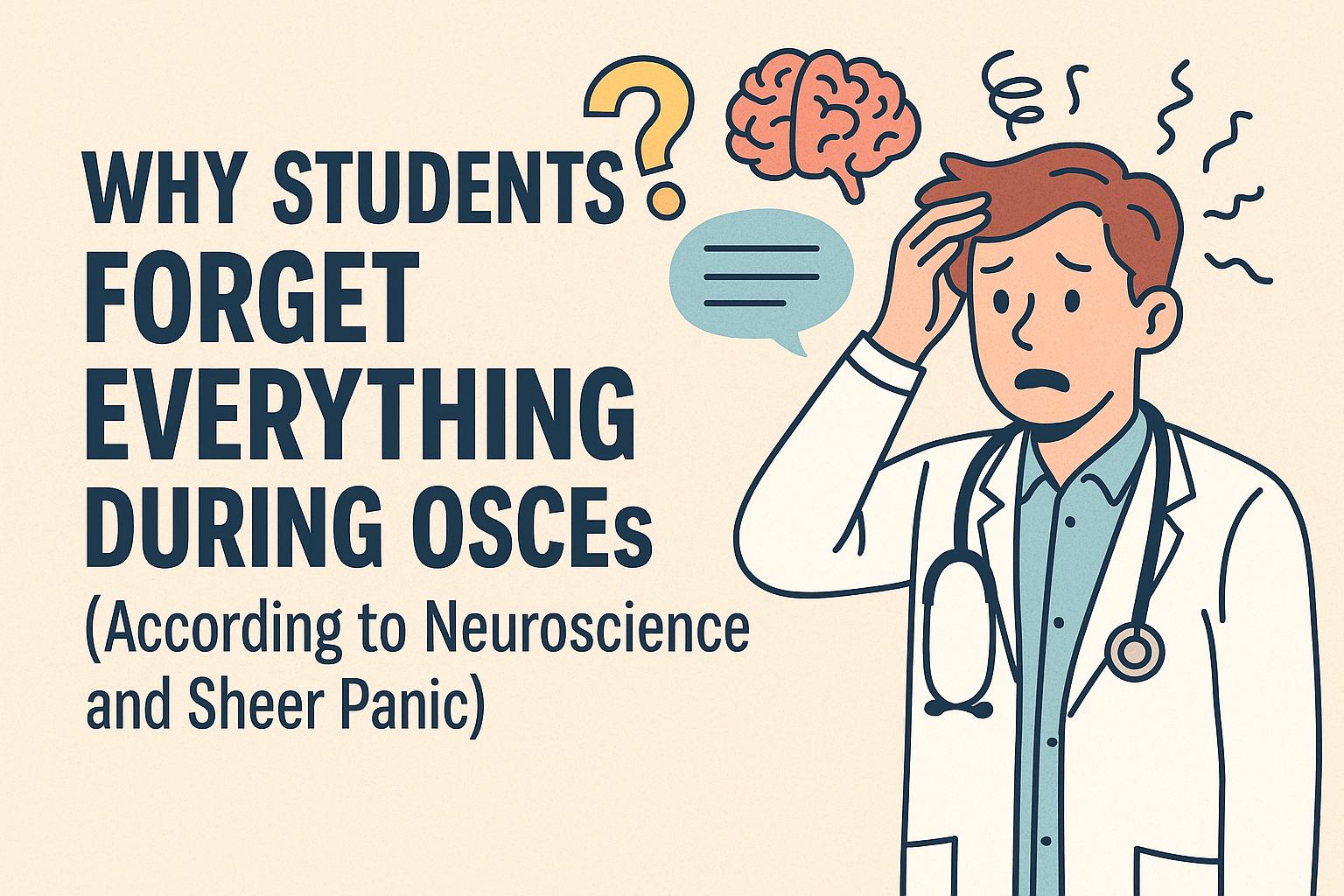Why Students Forget Everything During OSCEs (According to Neuroscience and Sheer Panic)

🧠 “What brings you in today?”
A simple question.
You’ve asked it a hundred times.
But suddenly—during the OSCE—you forget it exists. You stare blankly at the simulated patient, your brain buffering like a bad Wi-Fi connection.
So… why does this happen?
1. Fight, Flight… or Fumble
According to neuroscience, stress activates the amygdala, the brain’s emotional alarm system. When triggered, it sends cortisol and adrenaline flying through your system.
Useful in bear attacks.
Not so much in station 5 with “Mr. Chest Pain.”
These stress hormones literally disrupt the hippocampus, the area responsible for memory formation and retrieval. Translation:
Your brain chooses survival over remembering how to do a cardiovascular exam.
2. OSCEs are Like Speed Dating… But With Judgment
You get 8 minutes to prove you’re a compassionate, competent doctor who washes hands, listens well, and doesn’t forget to ask about red flags.
It’s a lot.
In these high-pressure, time-limited stations, your working memory is overloaded. It’s like trying to run Microsoft Excel, Spotify, and Call of Duty on a 2004 laptop. Something’s going to crash—and usually, it’s your recall of the cranial nerves.
3. Panic Has a Personality
Ever notice how your panic has a voice?
“You’re messing up.”
“You forgot the differentials.”
“He’s writing something. He’s writing something BAD.”
This internal commentary diverts attention from the task, leading to blank-outs and rushed performances. Your brain’s like, “Sorry, I was busy catastrophizing.”
4. Fake Patients, Real Anxiety
Standardized patients can be a mixed blessing. They smile politely, nod, and say things like:
“Doctor, I’ve been feeling breathless…”
You try to be calm and professional. But deep down, you’re thinking:
“Why can’t this be a normal MCQ?”
Ironically, the realism of OSCEs increases performance anxiety. You’re not just answering questions—you’re acting. And that makes your brain short-circuit if you’re not used to simulation-based scenarios.
5. Performance = Practice + Panic Management
The key isn’t just knowing your stuff. It’s retrieving it under pressure.
Here’s what helps:
- Simulate under stress – practice with timers and fake patients.
- Checklists – make muscle memory your best friend.
- Mindfulness – train your amygdala to sit down and chill.
- Laugh about it – humor disarms fear.
Final Words
If you blank out during an OSCE, don’t panic. Just nod wisely, say, “That’s very interesting,” and ask another open-ended question.
It works 60% of the time, every time.
Remember: it’s not that you don’t know—it’s that your brain chose to black out like a Windows update in the middle of a presentation.
